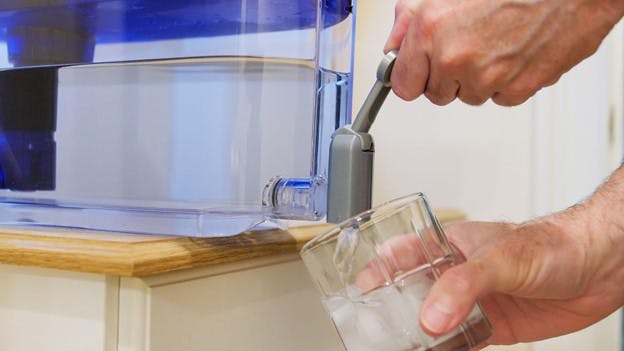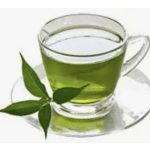Water Filter:
Access to clean water is essential for maintaining good health, and many people turn to water filters to ensure their tap water is safe and pleasant to drink. With so many different types of water filters on the market, it can be difficult to choose the best one for your home. In this post, we’ll explore the various types of water filters available, how they work, and which options might be right for you.
Why Use a Water Filter?
Even though municipal water is typically treated to meet safety standards, contaminants
The Ultimate Guide to Choosing the Right Water Filter for Your Home
Access to clean water is essential for maintaining good health, and many people turn to water filters to ensure their tap water is safe and pleasant to drink. With so many different types of water filters on the market, it can be difficult to choose the best one for your home. In this post, we’ll explore the various
The Ultimate Guide to Choosing the Right Water Filter for Your Home
Access to clean water is essential for maintaining good health, and many people turn to water filters to ensure their tap water is safe and pleasant to drink. With so many different types of water filters on the market, it can be difficult to choose the best one for your home. In this post, we’ll explore the various types of water filters available, how they work, and which options might be right for you.
Why Use a Water Filter?
Even though municipal water is typically treated to meet safety standards, contaminants can still make their way into your water supply. These can include:
Chlorine (used in disinfection but can affect taste and smell)
Lead (from aging pipes or plumbing fixtures)
Bacteria and parasites (especially in areas with compromised water systems)
Pesticides and herbicides (runoff from agricultural areas)
Heavy metals like mercury and arsenic
A good water filter can reduce or eliminate these contaminants, improving both the safety and taste of your drinking water.
Types of Water Filters
When choosing a water filter, it’s important to understand the different types available. Here’s an overview of the most common options:
1. Activated Carbon Filters
Activated carbon filters are one of the most popular types of water filters. They work by trapping contaminants in a porous carbon material. These filters are effective at removing:
Chlorine
Volatile organic compounds (VOCs)
Certain pesticides and herbicides
However, they may not be as effective at removing minerals or heavy metals. Activated carbon filters are often found in pitcher filters, faucet attachments, and under-sink systems.
2. Reverse Osmosis (RO) Systems
Reverse osmosis is a powerful filtration method that uses a semi-permeable membrane to remove a wide range of contaminants, including:
Heavy metals (lead, arsenic, mercury)
Nitrates
Bacteria and parasites
Fluoride
RO systems often include multiple stages of filtration, such as pre-filters and post-filters, to further purify the water. While highly effective, RO systems can be more expensive and may waste some water during the process.
3. Ultraviolet (UV) Filters
UV filters use ultraviolet light to kill bacteria, viruses, and other microorganisms in the water. They are an excellent option for homes concerned about microbial contamination but do not remove chemicals, heavy metals, or particulates. UV filters are often used in conjunction with other types of filtration for comprehensive water treatment.
4. Ceramic Filters
Ceramic water filters are designed to remove bacteria, sediment, and other particles. These filters have tiny pores that physically block contaminants from passing through. Ceramic filters are durable and can be cleaned and reused, making them a low-maintenance option. However, they are not effective at removing chemical contaminants like pesticides or heavy metals.
5. Water Distillers
Water distillers work by heating water to create steam, then condensing the steam back into water, leaving contaminants behind. This process is effective at removing a wide range of impurities, including:
Heavy metals
Microorganisms
Minerals
While distillers produce very pure water, they tend to be slow and may remove beneficial minerals along with contaminants, resulting in flat-tasting water.
Factors to Consider When Choosing a Water Filter
When deciding on a water filter, you’ll want to consider the following factors:
Water Quality: Conduct a water test or review your local water report to determine what contaminants are present in your water. This will help you choose a filter that targets those specific impuritise
types of water filters available, how they work, and which options might be right for you.
Why Use a Water Filter?
Even though municipal water is typically treated to meet safety standards, contaminants can still make their way into your water supply. These can include:
Chlorine (used in disinfection but can affect taste and smell)
Lead (from aging pipes or plumbing fixtures)
Bacteria and parasites (especially in areas with compromised water systems)
Pesticides and herbicides (runoff from agricultural areas)
Heavy metals like mercury and arsenic
A good water filter can reduce or eliminate these contaminants, improving both the safety and taste of your drinking water.
Types of Water Filters
When choosing a water filter, it’s important to understand the different types available. Here’s an overview of the most common options:
1. Activated Carbon Filters
Activated carbon filters are one of the most popular types of water filters. They work by trapping contaminants in a porous carbon material. These filters are effective at removing:
Chlorine
Volatile organic compounds (VOCs)
Certain pesticides and herbicides
However, they may not be as effective at removing minerals or heavy metals. Activated carbon filters are often found in pitcher filters, faucet attachments, and under-sink systems.
2. Reverse Osmosis (RO) Systems
Reverse osmosis is a powerful filtration method that uses a semi-permeable membrane to remove a wide range of contaminants, including:
Heavy metals (lead, arsenic, mercury)
Nitrates
Bacteria and parasites
Fluoride
RO systems often include multiple stages of filtration, such as pre-filters and post-filters, to further purify the water. While highly effective, RO systems can be more expensive and may waste some water during the process.
3. Ultraviolet (UV) Filters
UV filters use ultraviolet light to kill bacteria, viruses, and other microorganisms in the water. They are an excellent option for homes concerned about microbial contamination but do not remove chemicals, heavy metals, or particulates. UV filters are often used in conjunction with other types of filtration for comprehensive water treatment.
4. Ceramic Filters
Ceramic water filters are designed to remove bacteria, sediment, and other particles. These filters have tiny pores that physically block contaminants from passing through. Ceramic filters are durable and can be cleaned and reused, making them a low-maintenance option. However, they are not effective at removing chemical contaminants like pesticides or heavy metals.
5. Water Distillers
Water distillers work by heating water to create steam, then condensing the steam back into water, leaving contaminants behind. This process is effective at removing a wide range of impurities, including:
Heavy metals
Microorganisms
Minerals
While distillers produce
The Ultimate Guide to Choosing the Right Water Filter for Your Home
Access to clean water is essential for maintaining good health, and many people turn to water filters to ensure their tap water is safe and pleasant to drink. With so many different types of water filters on the market, it can be difficult to choose the best one for your home. In this post, we’ll explore the various types of water filters available, how they work, and which options might be right for you.
Why Use a Water Filter?
Even though municipal water is typically treated to meet safety standards, contaminants can still make their way into your water supply. These can include:
Chlorine (used in disinfection but can affect taste and smell)
Lead (from aging pipes or plumbing fixtures)
Bacteria and parasites (especially in areas with compromised water systems)
Pesticides and herbicides (runoff from agricultural areas)
Heavy metals like mercury and arsenic
A good water filter can reduce or eliminate these contaminants, improving both the safety and taste of your drinking water.
Types of Water Filters
When choosing a water filter, it’s important to understand the different types available. Here’s an overview of the most common options:
1. Activated Carbon Filters
Activated carbon filters are one of the most popular types of water filters. They work by trapping contaminants in a porous carbon material. These filters are effective at removing:
Chlorine
Volatile organic compounds (VOCs)
Certain pesticides and herbicides
However, they may not be as effective at removing minerals or heavy metals. Activated carbon filters are often found in pitcher filters, faucet attachments, and under-sink systems.
2. Reverse Osmosis (RO) Systems
Reverse osmosis is a powerful filtration method that uses a semi-permeable membrane to remove a wide range of contaminants, including:
Heavy metals (lead, arsenic, mercury)
Nitrates
Bacteria and parasites
Fluoride
RO systems often include multiple stages of filtration, such as pre-filters and post-filters, to further purify the water. While highly effective, RO systems can be more expensive and may waste some water during the process.
3. Ultraviolet (UV) Filters
UV filters use ultraviolet light to kill bacteria, viruses, and other microorganisms in the water. They are an excellent option for homes concerned about microbial contamination but do not remove chemicals, heavy metals, or particulates. UV filters are often used in conjunction with other types of filtration for comprehensive water treatment.
4. Ceramic Filters
Ceramic water filters are designed to remove bacteria, sediment, and other particles. These filters have tiny pores that physically block contaminants from passing through. Ceramic filters are durable and can be cleaned and reused, making them a low-maintenance option. However, they are not effective at removing chemical contaminants like pesticides or heavy metals.
5. Water Distillers
Water distillers work by heating water to create steam, then condensing the steam back into water, leaving contaminants behind. This process is effective at removing a wide range of impurities, including:
Heavy metals
Microorganisms
Minerals
While distillers produce very pure water, they tend to be slow and may remove beneficial minerals along with contaminants, resulting in flat-tasting water.
Factors to Consider When Choosing a Water Filter
When deciding on a water filter, you’ll want to consider the following factors:
Water Quality: Conduct a water test or review your local water report to determine what contaminants are present in your water. This will help you choose a filter that targets those specific impurities.
Filter Capacity and Replacement Costs: Some filters need to be replaced more frequently than others. Be sure to factor in the cost and frequency of filter replacements when making your decision.
Installation and Maintenance: Some systems, like whole-house filters, require professional installation, while others, like pitcher filters, are easy to set up and maintain.
Water Usage: If you’re filtering water for drinking and cooking only, a smaller system like a pitcher or faucet filter might be sufficient. For larger households or filtering water for the whole house, a more robust system, like reverse osmosis or a whole-house filter, may be needed.
Final Thoughts
Investing in a quality water filter can provide peace of mind and improve the taste and safety of your drinking water. Whether you opt for a simple activated carbon filter or a more comprehensive reverse osmosis system, the key is to choose a filter that addresses the specific contaminants in your water supply.
By doing your research and understanding your needs, you can find the perfect water filtration system to provide clean, safe water for you and your family.
—
Do you have a specific type of water filter or feature in mind that you’d like to explore further? Let me know in the comments below!
very pure water, they tend to be slow and may remove beneficial minerals along with contaminants, resulting in flat-tasting water.
Factors to Consider When Choosing a Water Filter
When deciding on a water filter, you’ll want to consider the following factors:
Water Quality: Conduct a water test or review your local water report to determine what contaminants are present in your water. This will help you choose a filter that targets those specific impurities.
Filter Capacity and Replacement Costs: Some filters need to be replaced more frequently than others. Be sure to factor in the cost and frequency of filter replacements when making your decision.
Installation and Maintenance: Some systems, like whole-house filters, require professional installation, while others, like pitcher filters, are easy to set up and maintain.
Water Usage: If you’re filtering water for drinking and cooking only, a smaller system like a pitcher or faucet filter might be sufficient. For larger households or filtering water for the whole house, a more robust system, like reverse osmosis or a whole-house filter, may be needed.
Final Thoughts
Investing in a quality water filter can provide peace of mind and improve the taste and safety of your drinking water. Whether you opt for a simple activated carbon filter or a more comprehensive reverse osmosis system, the key is to choose a filter that addresses the specific contaminants in your water supply.
By doing your research and understanding your needs, you can find the perfect water filtration system to provide clean, safe water for you and your family.
—
Do you have a specific type of water filter or feature in mind that you’d like to explore further? Let me know in the comments below!
can still make their way into your water supply. These can include:
Chlorine (used in disinfection but can affect taste and smell)
Lead (from aging pipes or plumbing fixtures)
Bacteria and parasites (especially in areas with compromised water systems)
Pesticides and herbicides (runoff from agricultural areas)
Heavy metals like mercury and arsenic
A good water filter can reduce or eliminate these contaminants, improving both the safety and taste of your drinking water



Pingback: Easy Kacchi Biryani Recipe - My Blog